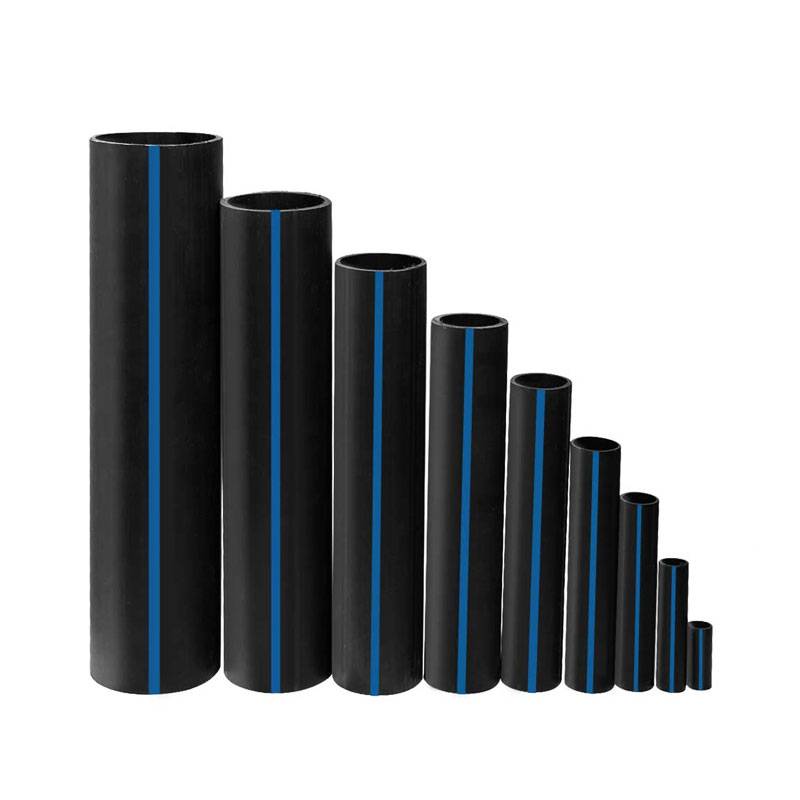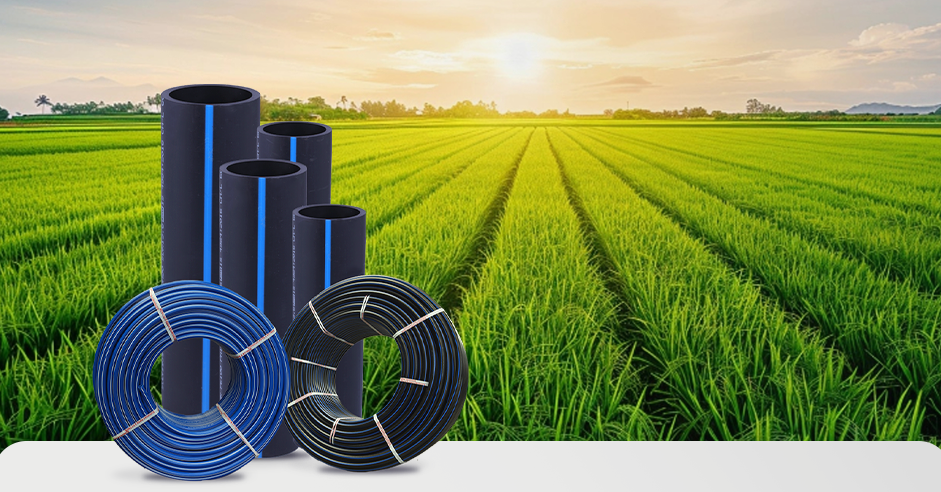How to Use hdpe pipe fittings Midland TX for Optimal Flow
Wiki Article
A Comprehensive Overview to the Numerous Uses HDPE Pipeline in Construction and Market
HDPE pipes have arised as a pivotal component in modern building and construction and industrial applications. Their one-of-a-kind homes, such as resistance to deterioration and lightweight layout, make them suitable for a vast array of uses. From water system systems to agricultural watering, HDPE pipelines offer remedies that enhance effectiveness and sustainability. Recognizing their diverse applications is crucial for professionals wanting to enhance facilities. What specific advantages do these pipes offer each sector?Water and Circulation Solutions
Supply of water and distribution systems are important elements of metropolitan facilities, usually relying upon high-density polyethylene (HDPE) pipes for their toughness and performance. These systems transport safe and clean water from treatment centers to consumers, making certain access and safety. HDPE pipes are favored for their resistance to deterioration, chemicals, and severe temperatures, which improves their durability and decreases maintenance costs. Additionally, their light-weight nature enables for less complicated setup and transport, making them excellent for different metropolitan and country applications.The adaptability of HDPE pipelines enables them to be mounted in limited areas and around barriers, minimizing the need for extensive excavation (hdpe pipe fittings Midland TX). In addition, their smooth indoor surface minimizes friction losses, enhancing water circulation rates. As cities proceed to expand, the need for reliable water supply systems boosts, placing HDPE pipes as a lasting remedy for modern-day infrastructure jobs. Their tried and tested performance history makes them a favored option among engineers and urban coordinators alike
Wastewater Management and Treatment
Efficient wastewater monitoring and treatment are vital for keeping public health and wellness and environmental high quality. HDPE pipes play a vital role in this procedure as a result of their resilience, resistance to corrosion, and capability to endure rough chemicals. These pipelines are frequently utilized in different applications, consisting of sewer system, stormwater drain, and wastewater therapy centers. Their lightweight nature facilitates simpler installment and transport, lowering labor costs and time.On top of that, HDPE pipes have a smooth interior surface area that minimizes friction loss, advertising efficient flow rates. They are likewise much less prone to leakages and failings compared to standard materials, ensuring that pollutants are contained successfully. Their flexibility allows for flexibility in numerous soil problems, making them appropriate for varied ecological settings. As industries significantly focus on lasting methods, using HDPE pipelines in wastewater administration systems lines up with goals for reducing ecological impact and boosting source healing.
Agricultural Watering Solutions
In farming settings, reliable watering solutions are vital for maximizing plant returns and handling water sources. HDPE (High-Density Polyethylene) pipes play a crucial duty in modern irrigation systems due to their sturdiness, flexibility, and resistance to corrosion. Their capacity to hold up against high stress makes them optimal for both surface and subsurface watering applications, making sure uniform water circulation across fields.Farmers can utilize HDPE pipes in drip irrigation systems, which provide water straight to plant origins, lessening wastefulness and advertising healthy and balanced growth. Additionally, these pipelines are lightweight and easy to mount, minimizing labor costs and setup time. Their lengthy life expectancy and reduced upkeep demands better improve their charm in agricultural techniques.
HDPE pipes are ecologically friendly, as they can be recycled and do not leach hazardous chemicals into the soil. This makes them a sustainable option for farmers aiming to adopt environmentally friendly farming techniques while optimizing performance.
Industrial Applications and Procedures
Versatility is a characteristic of HDPE pipelines, making them indispensable in numerous commercial applications and procedures. These pipelines are widely utilized in chemical handling sectors because of their outstanding resistance to a large range of destructive substances. HDPE's lightweight nature, incorporated with high tensile stamina, permits easy installation and long-lasting efficiency in requiring environments.In the oil and gas field, HDPE pipes play an essential duty in delivering hydrocarbons and gases, many thanks to their longevity and flexibility - American Plastics HDPE Pipe for Oilfield. Furthermore, they are used in mining procedures for the transportation of slurry and various other materials, where conventional piping systems may fail
Moreover, HDPE pipelines are significantly made use of in making centers for water supply lines and wastewater management. Their capacity to stand up to severe temperatures and pressures makes them ideal for a range of industrial processes. In general, HDPE pipelines contribute significantly to effectiveness and safety and security across diverse industrial applications.
Stormwater Management and Drainage Solutions
Stormwater administration and drain systems are critical components in city infrastructure, designed to manage excess rains and decrease flooding threats. High-density polyethylene (HDPE) pipes are significantly utilized in these systems as a result of their durability, adaptability, and resistance to deterioration. These pipelines successfully transfer stormwater far from inhabited locations, decreasing surface runoff and stopping waterlogging.HDPE's light-weight nature promotes much easier setup, lowering labor prices and building and construction time. Additionally, its resistance to chemicals and ecological stressors warranties longevity and reliability in various climates. Along with conventional drainage applications, HDPE pipelines are additionally utilized in cutting-edge services such as eco-friendly framework, which includes rainfall yards and permeable sidewalks.

Regularly Asked Questions
Just How Does HDPE Pipeline Contrast to PVC Pipeline in Expense?
As a whole, HDPE pipe has a tendency to be much more pricey than PVC pipe as a result of its enhanced resilience and versatility. Nonetheless, long-lasting cost considerations, such as upkeep and life-span, may favor HDPE in specific applications.
What Is the Lifespan of HDPE Pipes Under Numerous Problems?
HDPE pipes commonly have a life-span of 50 to 100 years, relying on ecological problems, setup methods, and use. Aspects such as temperature, soil kind, and direct exposure to chemicals can significantly affect their longevity.Can HDPE Piping Be Recycled After Usage?
Yes, HDPE pipelines can be recycled after usage. The reusing process involves thawing down the material, allowing it to be repurposed get more info into new products, therefore promoting sustainability and minimizing environmental influence associated with plastic waste.Exist Any Type Of Specific Setup Obstacles With HDPE Pipelines?
Setup challenges with HDPE pipes include proper jointing techniques, ensuring adequate trench problems, and handling thermal expansion. In addition, proficient labor is called for to manage specialized tools, which can make complex the installation procedure in different atmospheres.
What Accreditations Should I Search For When Purchasing HDPE Pipings?
When purchasing HDPE pipes, one must try to find qualifications such as ASTM, AASHTO, and ISO, which validate quality and compliance with industry standards, assuring longevity and performance in numerous applications. - Texas hdpe pipe manufacturerReport this wiki page